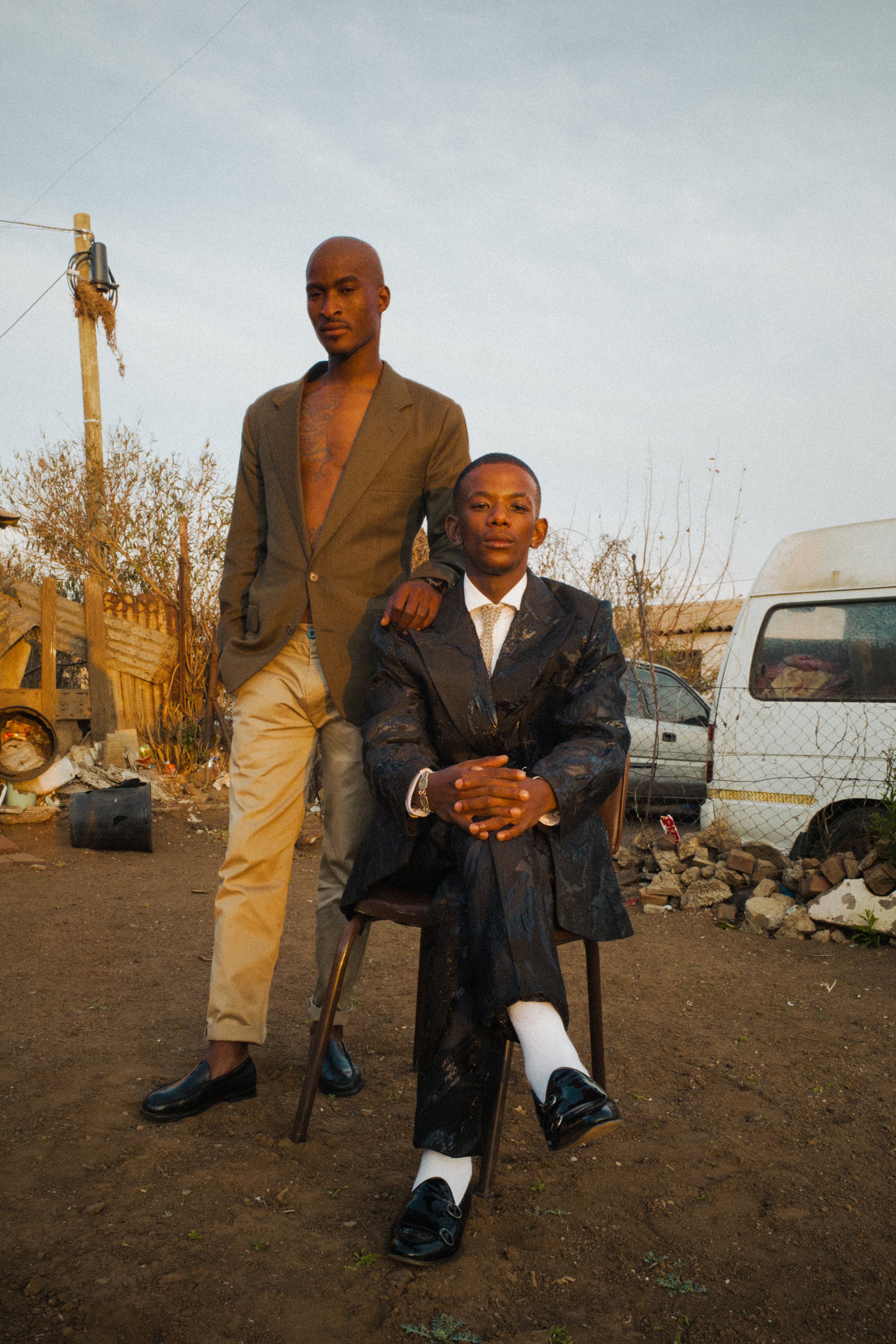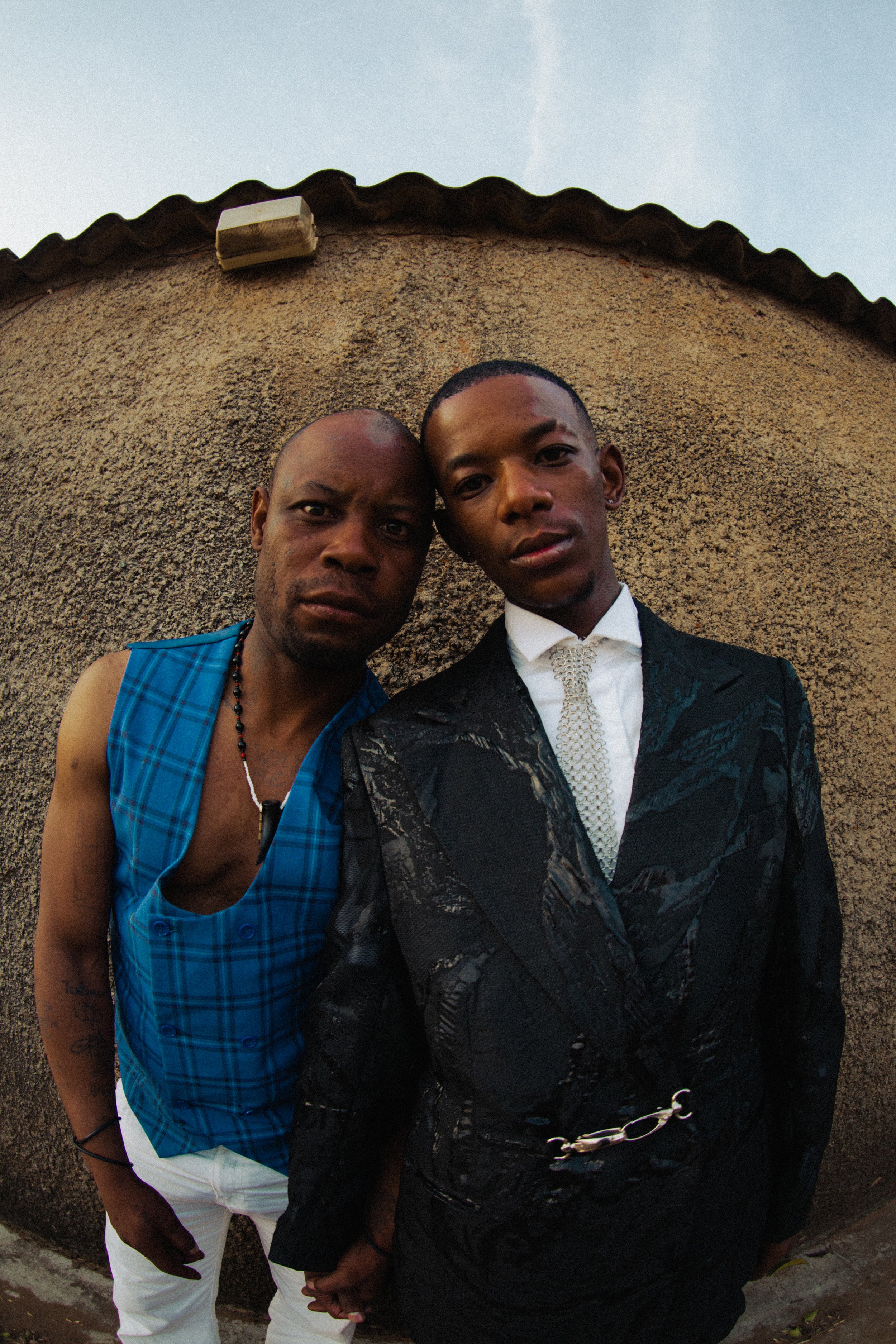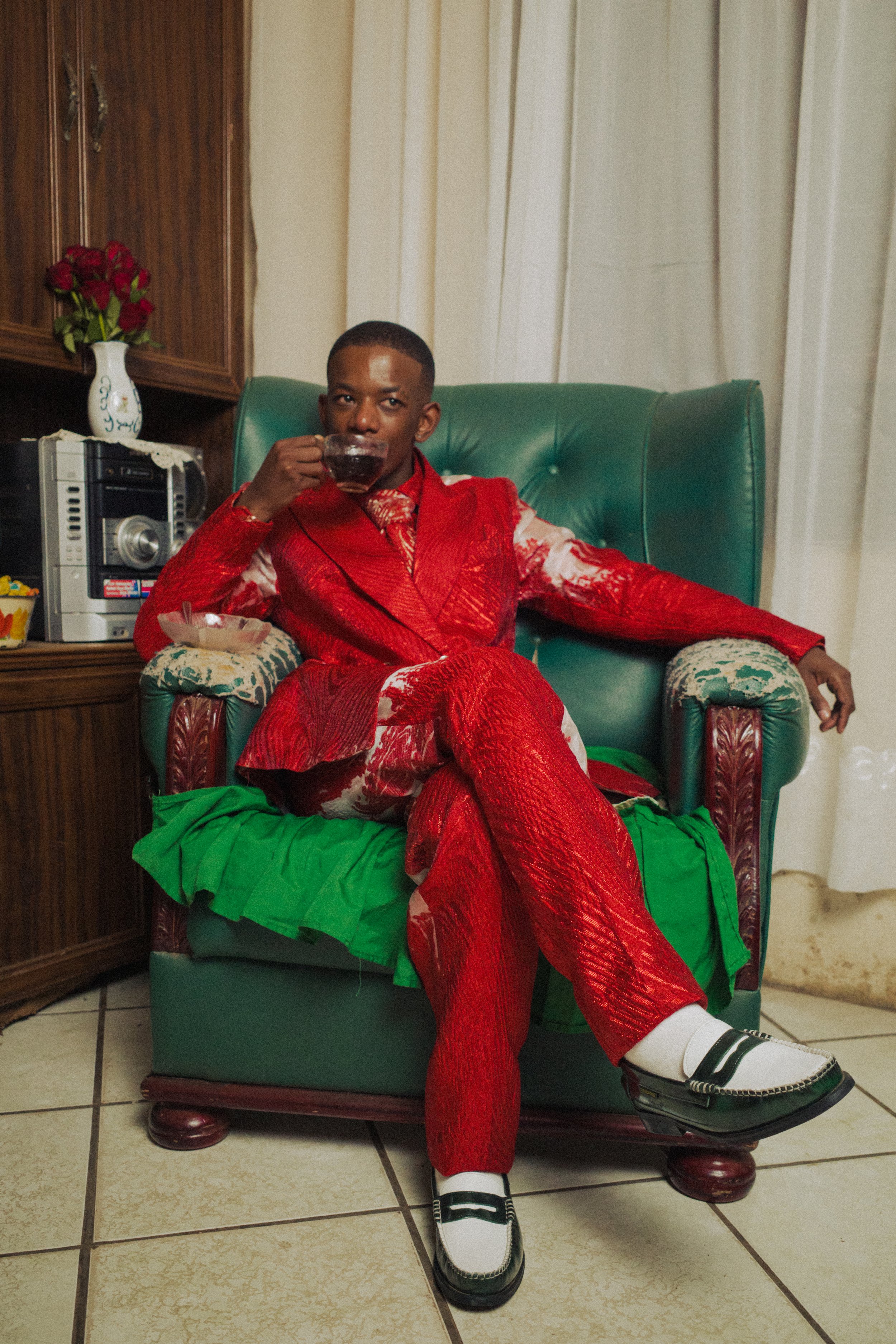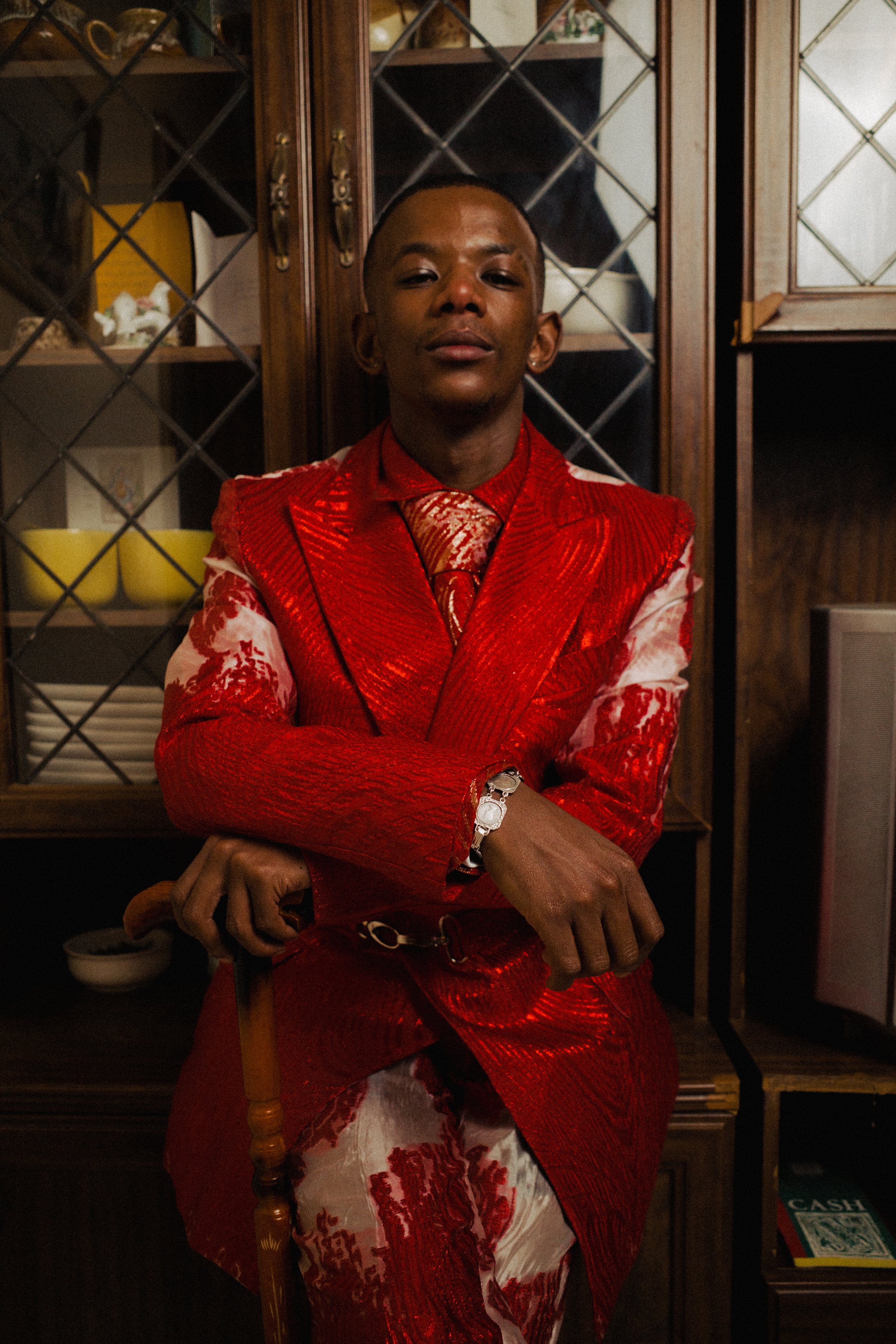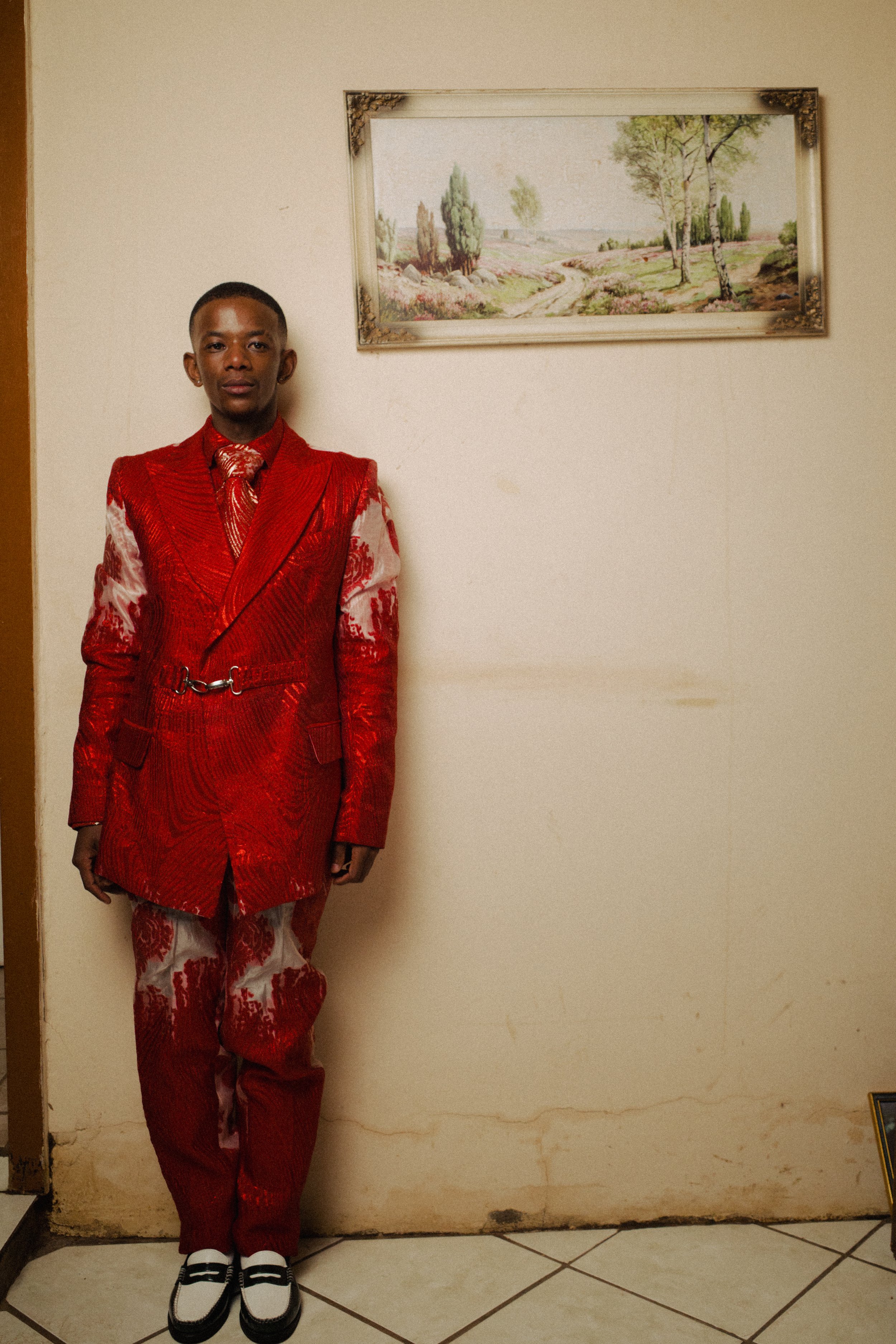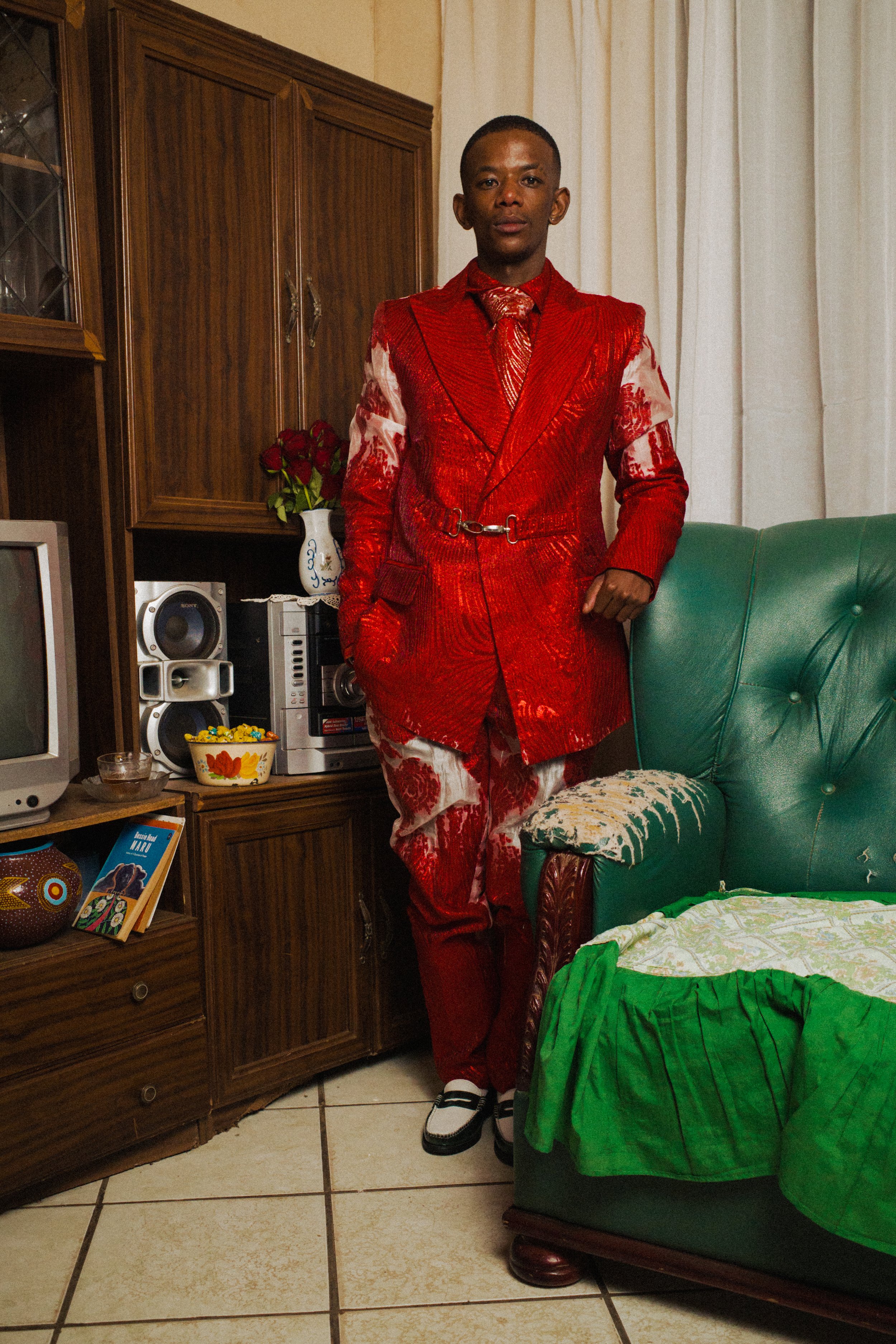The Making of Maglera Doe Boy
This story is dedicated to Slash, a beacon of light and joy in his hometown of Makazana. May his soul rest in peace.
Images by Shadin Kara.
All Eyes on Maglera
The sun is shining in Johannesburg as we travel two and a half hours towards the North West township of Kanana. A casually dressed Maglera Doe Boy signals for us to stop a couple of times along the journey. Petrol attendants and young children flock to him as he exits the car in what will be the first of many requests for pictures and chanting of his hit song “Makazana” from the 30-year-old’s debut album, Diaspora. In fact, the closer we get to where he grew up, the more it becomes clear that he is the epitome of a hometown hero.
Maglera (born Tukelo Moyake) makes time for each admirer, showing no signs of the hangover haunting him from the striking performance we watched the night before in Braamfontein. On stage with friends and co-collaborators, the South African rapper sheepishly admits that they ended the night off by celebrating “just a little bit.” By the time we get to the small yet vibrant mining town of Kanana, it’s hard to get a word in with the “018” hitmaker. While the crew sets up for the first shot in one of Maglera’s childhood homes, I take my chance to do the interview in a van parked down the street.
A few moments later, the van becomes surrounded by a sea of young, excited faces. No older than 15 or 16 and as young as 5 or 6, the group tries their luck at peering through the tinted windows, hoping to catch a glimpse of Maglera Doe Boy, who’s returned home for the first time in a while.
Maglera politely excuses himself as he suddenly draws open the door of the van to reprimand the group, who can’t believe their luck. There is a mixture of fear and excitement before he speaks. “You guys are making a noise, what I’m doing here is for all of us. Don’t be so excited that you forget to show respect,” he warns in Setswana. He assures the group that he will be out of the van soon and is more than happy to spend some time with them.
He turns to me, ready to slip right back into our conversation; “Now, where were we?”
The Making of A Man
Dressed head to toe in a Nao Serati suit that looks like it was cut for his slim frame, Maglera is perfectly at ease. He grabs a glass of liquor from one of his guys before settling in the van next to me. He answers my first question before I can ask it, stating “This is Kanana, this township we are in. It is one of the hoods in the North West known for gang violence, knife culture, and drug culture. Everyone you see here knows me very well for the fact that I’m from here but also what I was a part of while growing up here,” He is referring to his complicated history in the town that he is from, right before the interview walking us through the place he used to sell drugs, laughingly pointing at the apartment block where he lost his virginity.
Earlier that day, Maglera leads the way on foot to an Ethiopian restaurant. He saunters through the doors and is received lovingly by the kitchen staff, embracing the Little Ethiopia owner with a kiss on her cheek. They hurry to fix him a meal, while he brings everyone up to speed on what he’s been doing. The quaint woman prepares a traditional coffee-making station for him, as he takes his position and expertly readies himself for the camera. He switches between subject and collaborator, checking in with the crew if there’s anything he can do to get them a better shot.
This cross between South African and Ethiopian culture is just a small part of Maglera’s rich and diverse upbringing in his hometown. On set, I catch him speaking in Portuguese to an old friend, switching regularly between the several languages he has learnt along the way. He describes this as less of an active desire to learn about different cultures and more a result of co-existing in the place many people have come from all over to call home.
“This is exactly what the album represents. I needed it to sound like everything you see around us today. Yes I would be going to school and packaging drugs, but would also be soaking up Ethiopian culture and food, while my friend from Malawi is teaching me how to fix a phone,” he fondly recalls.
What’s in a Name?
Maglera Doe Boy is a name the rapper describes as “how I carry a piece of home with me wherever I go.” He explains; “Maglera is the nickname of Makazana formerly known as colonial Klerksdorp. Makazana is the name we claimed for where we lived. “Maglera” is a play on that. It’s a nickname that goes back as far as I can remember.”
He cites Doe Boy as a less (although not significantly) obvious nod to his previous life. “I came up with it when I was selling drugs in high school. I liked dope boys. I liked the white tees and earring culture. I took the [p] out because it was too loud about the fact that it was linking me to drugs. A lot of my friends were gang members and taught me about the importance of money in our culture, so I gravitated towards that and it gave birth to my lifestyle. Dopeboy has been my name since grade 9,” he reveals.
I ask him about the difference between Maglera the artist, and who he is when he doesn’t have to be “in character”. He maintains that both are an intrinsic part of how he can move through the world. “Tukelo and Maglera co-exist. They always have. I rap like I speak. The way I live my life is reflected in all of my lyrics, and I draw inspiration from my everyday life,” he clarifies.
House Rules
Born to parents who both dabbled in multiple careers before settling on education, Maglera’s early life was categorized by fond memories of dancing to Bob Marley and the Wailers in the kitchen with his mother and father before they separated, years before he would venture into music or selling drugs in his neighborhood.
Although he cites a challenging relationship with his father, he certainly left a mark on young Maglera in the years that he was around. “My father told me “You have to learn art. Be multifaceted,” he lived by that - in the back room of our house smoking a gwaai (a cigarette) right after practicing Tai Chi. I’m a lot of my father. He walked around with a yin and yang tattoo. He’d randomly come to me and say “Hey I’m visiting a mosque next week do you wanna join me?” He would say “The hood must not make you believe the world is small.’”
Maglera describes his parents’ separation as the year his life changed. “When my father left it affected how we lived. We were never well off, but we had enough. When he left, everything changed and I had to become self-sufficient. I spent a lot of time writing, I bonded with my brother about our absent fathers. Music made me strong, it wasn’t about the art at the beginning, it helped me to survive,” he reveals.
As for reconciliation, Maglera is a little indifferent about the fact that they reconnected years later and even though they’re not close, he will “do whatever [he needs to do] to make sure that he is good.”
Chosen Family
“Community is everything to me,” Maglera shares as he points towards a group of his childhood friends sitting outside the house. Bonded by trauma and a life that started in the streets, the relationship between Maglera and the men around him is surprisingly tender, loyalty reflected in long-standing handshakes and affection displayed through a kiss on the forehead between takes.
Maglera confidently holds the hand of his longtime friend Slash, while giggles erupt from a group of onlookers. “I’m not shy to hold my brothers hand,” he says to everyone, and no one in particular. Tragically, Slash would be murdered just a few months later.
Having only recently made the permanent move to Joburg, Maglera’s ties to his neighborhood remain solid. To him, success is as simple as “Coming home and everyone is happy to see me.”
To See is To Understand
Maglera has become synonymous with a fully formal fit, no matter the environment. He breaks down that fashion has been such a huge part of building his brand as an artist, something he takes from growing up around a group of opinionated women. “I was in the house with my mom and my sisters, always getting drip-checked before I left the house. They definitely contributed to my love affair with looking good,” he reminisces.
He goes on to illustrate that fashion is another layer to his visual language, which is extremely important in how he shows up in spaces where people may not understand him when he speaks, but can understand what they see.
This rings true for the various ways in which he has crafted visuals like Maglera Tapes, a BTS YouTube series depicting what an average day in the life is like for the rising rapper. “I feel like art is cuisine. When you introduce people to a new meal, you teach them how to eat, and what goes on the side with it, and I feel like my visuals are a big part of that understanding. I use deep street slang in my songs and when people are able to see me emulate my words, they understand what I’m talking about even though we don’t speak the same language,” he clarifies.
When choosing who to collaborate with, Maglera enlightens me about how intentional that process is in spreading his music all over South Africa and beyond. “There was a time I was rapping and people were like “what the hell are you saying” I realized that the only way to teach them was through other people who spoke a language they understood.”
Maglera goes on to say that as much as it’s about leveraging the audience of his collaborators, the ultimate goal is to convert them. “ If I’m honest, I’m tryna take everyones fans. At the end of the day that’s where my past comes into play-I need to sell over here, here and here. The music game is no different to me.”
Eyes to The Sun, Feet on The Ground
“Ladies and gentlemen, boys and girls, you are now tuned into the township. I’m your host with the most, Maglera Doe Boy,” His distinctive voice echoes on the start of “Makazana”. A line that aptly captures the hopes of the budding artist, always hoping to carry home with him wherever he goes. “To talk about where I come from is half the journey, I take pride in shedding light on the struggle and beauty of my people,” he explains simply.
A year from now, Maglera predicts that “I’ll be sitting here with you, telling you how it all came together.”
We wrap the shoot, making one final stop before heading back to Johannesburg. We are led into his mother’s home, as she beams with pride under the makeshift lights during a power cut. We bow our heads while she prays for our safe journey home. An illustration of her little boy hangs above the cabinet in the living room, forever young.
Credits
Creative director: Shadin Kara and Chloe Turner
Producer : Chloe Turner
Maglera Wears : NAO Serati and Uniform
Photographer: Shadin Kara







